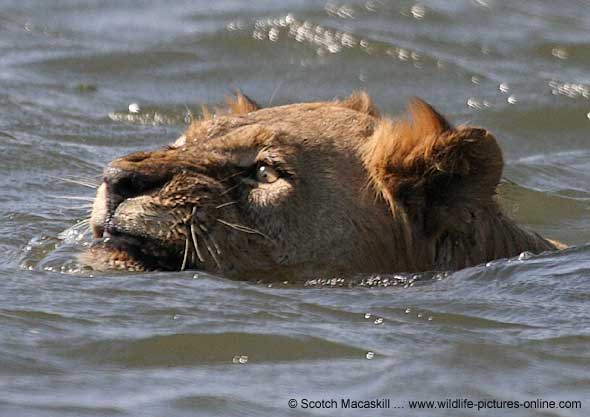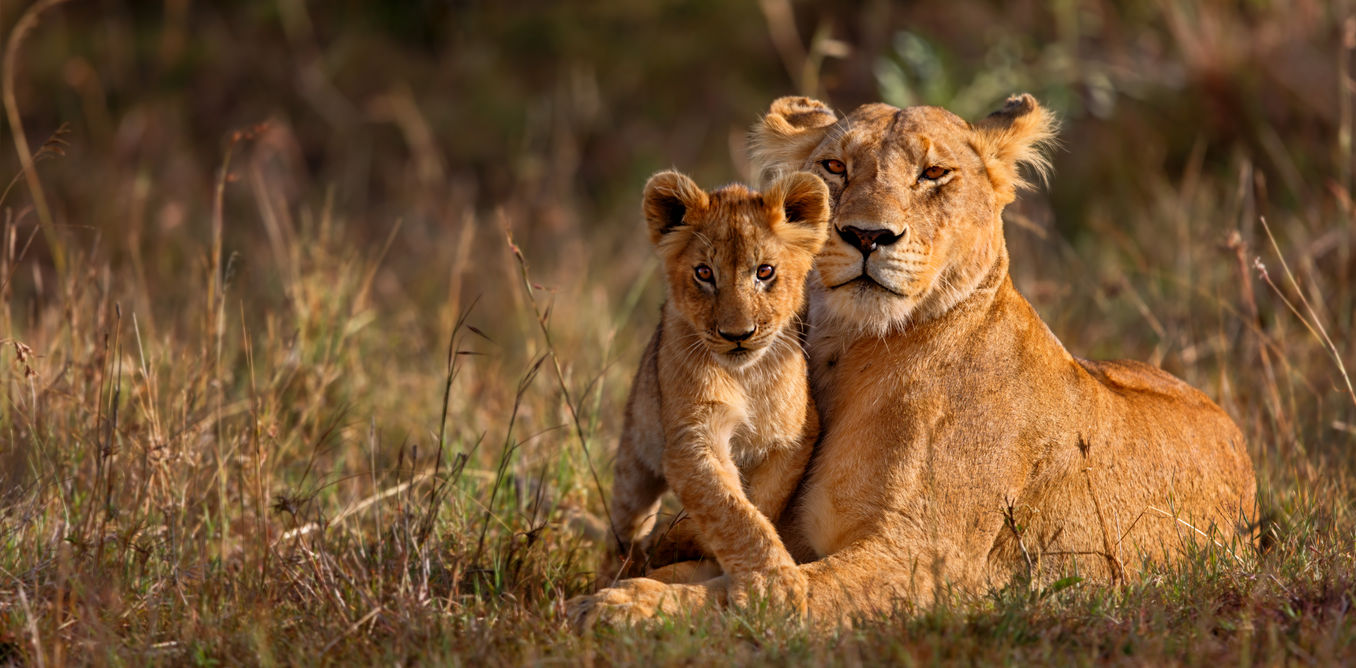Where are lions found and what is their conservation status?
Lions (Panthera leo) are distributed around fragmented central and southern African pockets. However, they once occupied an extensive and continuous range that extended into Europe and India. Today there are very few lions outside of Africa and these are generally known as Asiatic Lions.
Unfortunately, there has been a rapid decline in the abundance of lions in the past one hundred years and they are now considered to be “Vulnerable” according to the IUCN Red List. To learn more about the conservation status of lions, please take a look at the Lion Recovery Fund and consider making a donation.
Can Lions Swim?
Yes, lions can swim. Lions need to be able to swim as their habitat, known as the savanna, is segmented by rivers which they will periodically need to cross. Lions will avoid swimming where possible, just like many other big and small cats.
Why would lions need to swim?
Of course, it is possible that lions would be interested in swimming as a leisure activity, especially since lions are a social species that spend lots of time in their pride, interacting with each other. This is an unusual feature of both big and small cat societies which are typically solitary and highly territorial. This means that most big cats only interact when they are looking to mate. You might have noticed that domestic cats are quite social, but this again is unusual and these cats have been domesticated by thousands of years of human interaction.

The reality is that for lions, swimming is a big risk. They would usually have to swim in order to cross rivers to get to a better food source on the other side. For example, if a herd of wildebeest in the Serengeti plains of southeastern Africa crosses a river, lions will likely have to do the same since they form a large part of their diet.
Crossing a river is inherently a dangerous task, particularly in Africa where there are crocodiles that are capable of drowning and then consuming an adult lion. Although you might think that lions are very big, they are nonetheless vulnerable in the water. Another hazard of crossing a river is being swept away by strong currents which bring risks of drowning and being rendered unconscious by striking submerged debris in the river.
Therefore, lions are much more careful when they cross rivers. They attempt to find the shallowest place where they may be able to wade through the river and avoid swimming altogether. This video on YouTube demonstrates this phenomenon, where a pair of male lions search for a safe place to cross a river. Another video demonstrates that lions are indeed capable of swimming if necessary when an accidental trip, leads to a lion swimming in a zoo.
Check out our other blogs on animals and nature!
- Are lions nocturnal?
- Do lions attack and eat humans?
- Do moths sleep? and Where do moths go during the day?
- Do seagulls sleep? and Where do seagulls sleep?
- How long…..? answers to all of your questions.
We hope you have learned the answer to the question: Can lions swim? and if you would like to read more about science, check out our other blog posts. Alternatively, consider taking a science quiz!
About Discover Tutoring.
We are biologists by training and when we write an article we read the scientific literature to find the most accurate answers to your questions. We do not guess, we do not assume, we check the research. If you are interested in our conclusions and want to find out more, check out the references at the bottom of every page we post on nature.
References –
Alexander, R. (1998). When Is Migration Worthwhile for Animals That Walk, Swim or Fly? Journal of Avian Biology, 29 (4), 387–394. https://doi.org/10.2307/3677157
Bradshaw, J. (2016). Sociality in cats: A comparative review. Journal of Veterinary Behavior, 11. https://doi.org/10.1016/j.jveb.2015.09.004.

